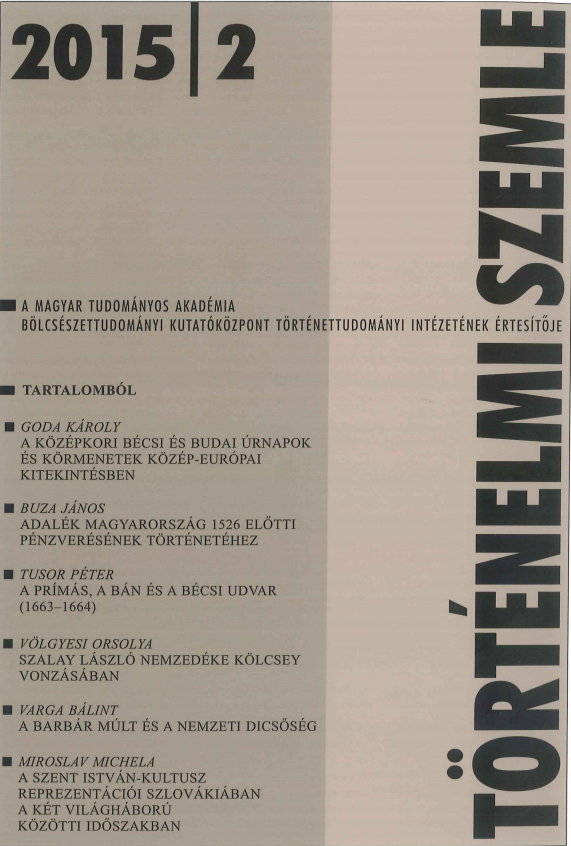A barbár múlt és a nemzeti dicsőség
The Barbarian Past and the Glory of the Nation
Author(s): Bálint VargaSubject(s): Christian Theology and Religion, Military history, Political history, Recent History (1900 till today), 6th to 12th Centuries, 19th Century
Published by: Magyar Tudományos Akadémia Bölcsészettudományi Kutatóközpont Történettudományi Intézet
Keywords: Barbarian past; Hungary; Christianity; 10th century; 19th - 20th centuries;
Summary/Abstract: After settling in the Carpathian Basin in the early 10th century, pagan and nomadic Magyar tribes led a series of military campaigns against the organized states of Christian Europe. Based on the changing interpretations of these five decades, this study attempts to answer the question, how 19th century historians tried to interpret „inconvenient” events in a way that they could still insert into the master narrative of the glorious national past, utilizing the required methodology of historiography. Influenced by Göttingen scholar Ludwig Schlözer, authors of the late Enlightenment in Hungary depicted a rather negative picture about the Magyar raids. They condemned the Magyar campaigns as barbaric deeds, but at the same time used the ancient topos of noble savage to clear from the most negative charges of contemporary German authors. Romanticism brought about a significant change. In 1836 Mihály Horváth, the most influential romantic historian, wrote a comprehensive study Parallel between the Magyar nation moving to Europe and the civil and moral culture of Europe. In this bulky paper, Horváth argued that in the 10th century, Christian people of Europe had already lost their previous freedom but they developed no higher culture yet. Contrarily, Magyars were evidently free, though Christian Europe was somewhat ahead in terms of complexity of social structures and culture. The raids were outcome of the „young age” of the nation. This apologetic tone ruled the mid-19th century Magyar historiography. The late 19th and early 20th centuries witnessed the rapid development of Hungarian historical scholarship in methods, infrastructure, institutions and number of the staff. Critical historiographical standards became more common. The historians of this period became again critical towards pagan Magyars, whose society was now believed underdeveloped in terms of state-building. The Magyar campaigns were seen by critical historians as individual undertakings, which endangered the national unity. Two factors explain the change of the paradigm: first, the European intellectual environment, which Hungarian authors followed closely. Second, that the role of the state gained an increasing weight in Hungarian political discourse from the 1870s, replacing the former emphasis on people.
Journal: Történelmi Szemle
- Issue Year: 2015
- Issue No: 02
- Page Range: 319-332
- Page Count: 14
- Language: Hungarian

